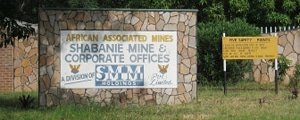
TURNALL Holdings Limited managing director John Jere has said the country can generate over $180 million as fresh money into the economy through the resuscitation of asbestos mines in Shabanie and Mashaba.
Tarisai Mandizha Business Reporter
The asbestos mining entity stopped operating in 2004 after the government took over ownership of Shabanie and Mashaba Mines (SMM) from Mutumwa Mawere.
Speaking at the official launch of the Zimbabwe chrysotile asbestos position paper in Harare yesterday, Jere said the two mines had the capacity to produce 180 000 metric tonnes of chrysotile asbestos fibre and of this, 90% was exported.
“The country can realise about $180 million which could be the fresh money coming into the economy if we resuscitate the mines,” Jere said.
He said Turnall Holdings was currently spending a lot of money through imports, and the money could have been used for other things to boost the economy.
Jere said the Zimbabwe chrysotile asbestos position paper, launched yesterday would enable the country to engage the international community.
Industry and Commerce minister Mike Bimha said the asbestos industry has huge potential to contribute to the country’s socio-economic development in line with the Zimbabwe Agenda for Sustainable Socio-Economic Transformation ( ZimAsset).
- Chamisa under fire over US$120K donation
- Mavhunga puts DeMbare into Chibuku quarterfinals
- Pension funds bet on Cabora Bassa oilfields
- Councils defy govt fire tender directive
Keep Reading
“Zimbabwe still has the potential to be one of the world’s largest producers of high quality chrysotile asbestos fibre and contribute immensely to employment generation and the downstream industries,” Bimha said.
“We look forward to our asbestos mines in Shabanie and Mashaba running again. The resuscitation of the mines will significantly cut on the asbestos fibre imports, create jobs at the mines and downstream industries.”
He said the chrysotile asbestos position paper was aimed at telling the Zimbabwean story and defending the country’s interests regarding production, trading and safe use of chrysotile asbestos and related products.
“As you may all be aware, the past two decades have witnessed intense international lobby against the use of, and trade of asbestos fibre. While the use of the blue amphibole type of asbestos has been prohibited internationally, the white chrysotile type which is produced in Zimbabwe has not been scientifically condemned outright as a harmful substance if used in a controlled manner,” Bimha said.
He said the position paper was a product of wide consultation between government, the private sector, asbestos industry and labour under the auspices of the National Chrysotile Taskforce.
Bimha said chrysotile asbestos still remains in use in other countries like China, Brazil, Russia and India.
He added that the government will continue to lobby against the inclusion of chrysotile asbestos in Annex of the Rotterdam Convention on Prior Informed Consent (PIC), an international treaty that restricts global trade in hazardous and dangerous chemicals.











